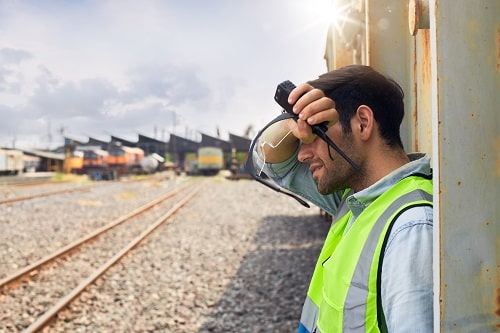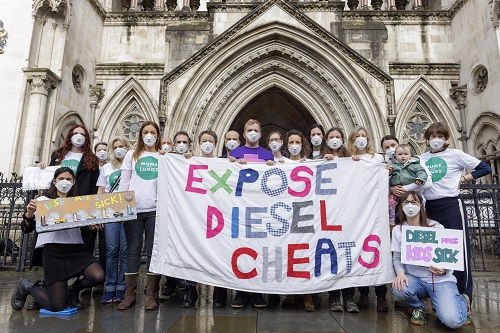Ten years ago, the United Nations’ General Assembly decreed that 20 March would be ‘International Day of Happiness’. You may have seen that Finland came out top as the happiest country in the world, for the sixth year running, in the World Happiness Report, based on the Gallup World Poll. Sadly, the UK dropped two places in the rankings to 19th, while the US rose by one place to 15th, and France fell out of the top 20.
Opinion
Can we see the wood for the trees?
Overall, the report paints quite a positive picture, and shows that people’s ‘life evaluations’ have been quite resilient. In fact, global averages of ‘happiness’ in the Covid years of 2020 to 2022 are as high as they were in the pre-pandemic years of 2017 to 2019.
 Mike Robinson FCA, chief executive, British Safety Council: "In a world flooded with information and data, it is hard to see the wood for the trees, but surely something worth trying, if nothing else than for the sake of our own and others’ wellbeing."
Mike Robinson FCA, chief executive, British Safety Council: "In a world flooded with information and data, it is hard to see the wood for the trees, but surely something worth trying, if nothing else than for the sake of our own and others’ wellbeing."
However, the authors of the report stress that we should not just look at the average levels of happiness which result from a particular society, we should also look at the scale of ‘misery’, or low life satisfaction, to get the full picture.
This is a theme picked up in analysis of the latest Gallup World Poll, by an international group of academics, which showed that people around the world – of all ages, income, and education – are increasingly saying they are ‘emotionally distressed’.
By combining findings about worry, sadness, stress and anger into a single metric, they have created a global index of ‘emotional distress’, which shows a similar rise in all 113 countries.
From 2009 to 2021, the report shows that prevalence of feelings of distress increased a lot, by around 24 per cent. Fourteen years ago, one in four people reported experiences of distress. Two years ago, that had risen to one in three, or two billion adults. This was the case across demographic groups, though largest among more disadvantaged groups.
Crucially, the report found that distress levels rose during the pandemic in 2020, over and above the general increasing trend in distress. That said, for all groups wellbeing returned quite quickly to pre-pandemic levels.
So, what’s leading to this increase in emotional distress? The reality is we don’t know for sure.
Some people think it could be because we’re all a bit more willing to talk about our feelings. Others point to social media, and especially its impact on younger people’s mental health.
Even the academics who created the index are not certain, wondering if it is about broader trends around economic and political insecurity and social cohesion, or maybe down to declining trust in politicians.
Life expectancy has increased around the world – though we have also learned it was slower in the UK than other G7 countries in the past seven decades and is now falling.
Across the globe people are materially better off, and better educated than ever before. So, what is driving our increasing anxiety?
The Times, in a recent editorial, wanted to tell us the good news (for once) that: “the proportion of people living in extreme poverty has declined at its fastest rate in history over the past two decades. More than half the world’s population is middle class. Global deaths of children under five more than halved between 1990 and 2021.”
For more proof that the world is actually better than you think it is, try reading Factfulness by Swedish academic Hans Rosling, along with his son and daughter-in-law.
As the book’s publishers say: “When we worry about everything all the time instead of embracing a worldview based on facts, we can lose our ability to focus on the things that threaten us most.”
In a world flooded with information and data, it is hard to see the wood for the trees, but surely something worth trying, if nothing else than for the sake of our own and others’ wellbeing.
OPINION

Heat at work: a silent killer
By Halshka Graczyk and Lacye Groening, ILO on 07 April 2025
Workers across the world are increasingly being exposed to excessive heat with serious implications for their safety and health. It is therefore vital that governments, employers and workers’ organisations develop, share and implement practical and low-cost strategies and measures for effectively reducing the risk from heat stress at work.

Making good work the foundation
By Mike Robinson FCA, British Safety Council on 07 April 2025
In 2024, for the first time, the UK dropped out of the list of the top 20 happiest countries: according to the World Happiness Index. This year, the UK rests in 23rd place, slightly ahead of the US and behind the Nordic countries, Germany, the UAE and others.

The air we share: why tackling pollution protects us all
By Scott Paul, Mums for Lungs on 04 April 2025
Air pollution is often invisible; its impact is anything but. Whether you’re a parent worried about your child’s lungs, a construction worker breathing exhaust fumes, or a commuter passing through busy streets, polluted air is everyone’s problem.



